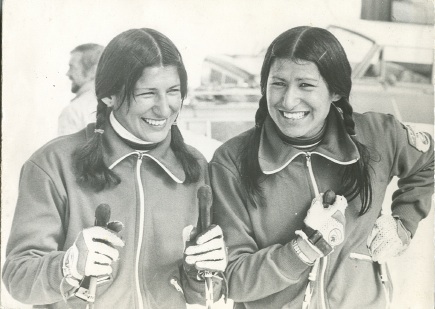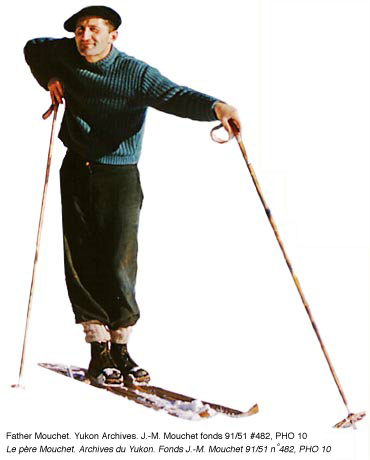 Clenching your muscles increases self-control. So does having a loud super-ego, or at least some form of inner monologue. Isolation disrupts our will power, as does having too much dopamine in our systems, like ADHD sufferers chronically do. Sugar boosts self-control. So does a short burst of exercise. For smokers, the same restorative effect happens when they smoke a cigarette.
Clenching your muscles increases self-control. So does having a loud super-ego, or at least some form of inner monologue. Isolation disrupts our will power, as does having too much dopamine in our systems, like ADHD sufferers chronically do. Sugar boosts self-control. So does a short burst of exercise. For smokers, the same restorative effect happens when they smoke a cigarette.
Shirley Firth Larsson was a cross-country skier. She won the Canadian championships 29 times and competed – alongside her twin sister Sharon – in four consecutive Olympics (1972-84). She was indigenous Gwich’in from Inuvik, in Northern Canada, and she died of cancer a week ago.
We are less impulsive if we have long-term goals — something investors would be well served to keep in mind. Disciplined people are infectious: if we’re watching or even thinking of someone else who has good self-control, we stick to our goals. Disciplined people are also more satisfied with less. People with self-control deficiencies categorize more things as necessities. Muscle fatigue originates in the brain and can easily be influenced psychologically.
Shirley Firth Larsson was just one of the notable students who came out of Father Mouchet’s TEST program. That’s short for the Territorial Experimental Ski Program. Mouchet was a French resistance fighter. An oblate priest. A cross-country skiing enthusiast. An immigrant in 1946 to the Canadian Arctic. He thought the way to help indigenous students was to give them self-confidence and motivation through disciplined physical training.
Roy Baumeister and colleagues proposed a resource model of self-control – if we put in the effort to resist temptations in the morning, we might be more susceptible to them in the afternoon. If this is true, the key to better behavior would be in the removal of temptations. More recent work has suggested self-control has more to do with motivation and attendance. An area in the dorsal fronto-median cortex is activated every time we resist a temptation. When our attention shifts away from the task at hand, we start using all kinds of heuristics for our decisions, instead of really thinking things through or considering consequences.
There are fewer than 300 people in the Yukon fly-in community of Old Crow. January’s average daily low is -35˚C, not including wind chill. You couldn’t pay me enough to ski every morning before school in Old Crow. They started in primary school. Father Mouchet never got much religious traction in his largely Anglican community, but he is a hero to many. He was a rare gentle person in the lives of children who had been abducted from their families and sent to residential schools to be stripped of their culture. Now he’s 95 and says things like “I don’t think the child coming out of native society has the toughness that they used to have in those days.”

One thought on “Unconnected Dots: Sport and Will Power”
Comments are closed.